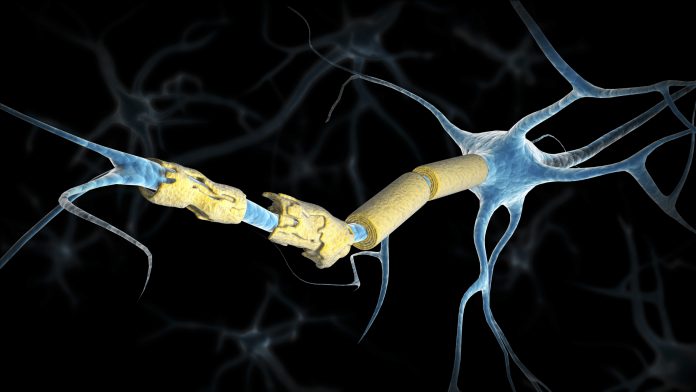
A study led by the University of Melbourne shows starting antibody therapy for treatment of multiple sclerosis (MS) at an early age in affected children can help reduce disability in early adulthood in these individuals.
“This study highlights the critical importance of early intervention in pediatric-onset MS,” said Sifat Sharmin, PhD, research fellow in the Clinical Outcomes Research Unit at the University of Melbourne, who presented the research at the European Committee for Treatment and Research in Multiple Sclerosis conference.
“Our findings indicate that initiating high-efficacy therapies like ocrelizumab, rituximab, or natalizumab during childhood can lead to significantly improved long-term outcomes, preserving neurological function and reducing disability progression.”
MS is a progressive autoimmune condition that causes breakdown of the myelin around nerves in the spinal cord and the brain. It impacts around 2.8 million people around the world.
The most common age of onset of MS is in adults in their late twenties or early thirties, but around 5% of cases start before the age of 18 years. An even smaller number (around 1% of cases) occur before the age of 10 years.
In this study, Sharmin and colleagues assessed disability outcomes between the age of 23 and 27 years in people with MS who were diagnosed before the age of 18. The team analyzed whether starting antibody therapy—ocrelizumab, rituximab, or natalizumab—at an earlier age would improve outcomes in these young people.
The study group included 282 young patients with MS, 110 who started therapy between the age of 12 and 17 years and 172 who started a similar therapy between 20 and 22 years of age.
The researchers measured the difference in Expanded Disability Status Scale (EDSS) score, a common measure of disability in MS patients, in the study group when they reached 23–27 years.
The median score at enrollment was 1.5 in the early treatment group and 1.3 in the later treatment group. After 8.5–14.0 years of follow up, disability had increased by 0.4 EDSS points in the early treatment group and 0.95 points in the late treatment group.
At present, many clinicians are cautious about prescribing antibody therapy to children with MS because there is limited evidence about efficacy and safety of these medications in younger age groups.
“These findings are a strong argument for rethinking current treatment guidelines,” Sharmin urged. “By allowing earlier access to effective treatments, we can significantly enhance the quality of life for children with MS and reduce the burden of long-term disability.”













